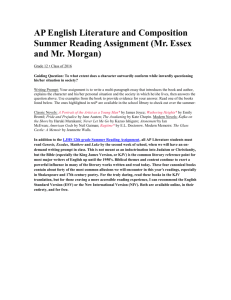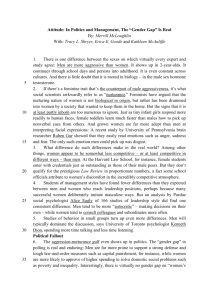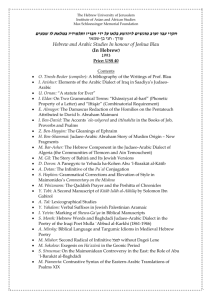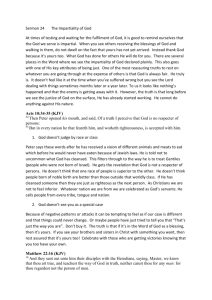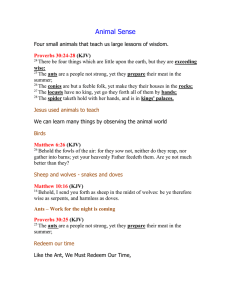Kutilek`s Review
advertisement
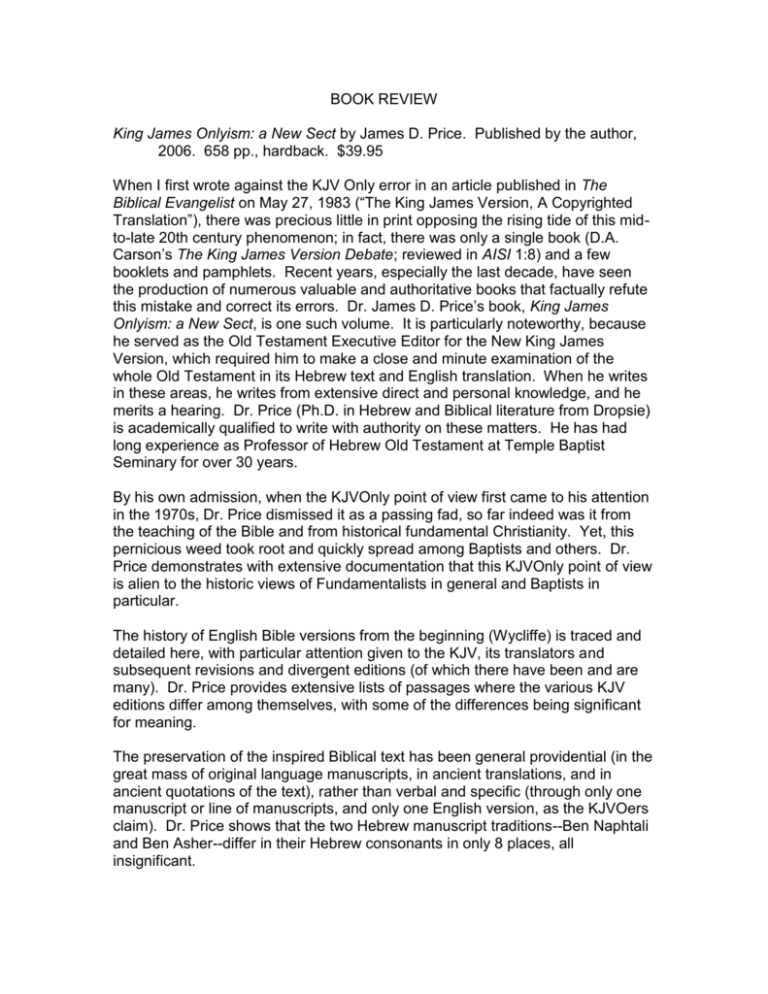
BOOK REVIEW King James Onlyism: a New Sect by James D. Price. Published by the author, 2006. 658 pp., hardback. $39.95 When I first wrote against the KJV Only error in an article published in The Biblical Evangelist on May 27, 1983 (“The King James Version, A Copyrighted Translation”), there was precious little in print opposing the rising tide of this midto-late 20th century phenomenon; in fact, there was only a single book (D.A. Carson’s The King James Version Debate; reviewed in AISI 1:8) and a few booklets and pamphlets. Recent years, especially the last decade, have seen the production of numerous valuable and authoritative books that factually refute this mistake and correct its errors. Dr. James D. Price’s book, King James Onlyism: a New Sect, is one such volume. It is particularly noteworthy, because he served as the Old Testament Executive Editor for the New King James Version, which required him to make a close and minute examination of the whole Old Testament in its Hebrew text and English translation. When he writes in these areas, he writes from extensive direct and personal knowledge, and he merits a hearing. Dr. Price (Ph.D. in Hebrew and Biblical literature from Dropsie) is academically qualified to write with authority on these matters. He has had long experience as Professor of Hebrew Old Testament at Temple Baptist Seminary for over 30 years. By his own admission, when the KJVOnly point of view first came to his attention in the 1970s, Dr. Price dismissed it as a passing fad, so far indeed was it from the teaching of the Bible and from historical fundamental Christianity. Yet, this pernicious weed took root and quickly spread among Baptists and others. Dr. Price demonstrates with extensive documentation that this KJVOnly point of view is alien to the historic views of Fundamentalists in general and Baptists in particular. The history of English Bible versions from the beginning (Wycliffe) is traced and detailed here, with particular attention given to the KJV, its translators and subsequent revisions and divergent editions (of which there have been and are many). Dr. Price provides extensive lists of passages where the various KJV editions differ among themselves, with some of the differences being significant for meaning. The preservation of the inspired Biblical text has been general providential (in the great mass of original language manuscripts, in ancient translations, and in ancient quotations of the text), rather than verbal and specific (through only one manuscript or line of manuscripts, and only one English version, as the KJVOers claim). Dr. Price shows that the two Hebrew manuscript traditions--Ben Naphtali and Ben Asher--differ in their Hebrew consonants in only 8 places, all insignificant. The principles and processes by which the original text is reconstructed and restored from the manuscripts, versions and quotations are presented. The various published Greek texts are noted and analyzed, including the textus receptus, Byzantine, and critical texts in the NT. Price notes that the differences he was able to discover between the present-day standard Hebrew text, the Biblia Hebraica Stuttgartensia (which KJVO partisans decry as “apostate” and “corrupt”), in comparison with the Second Rabbinic (Bomberg) Bible (1525) amounted to only 9. The number of places where the KJV OT differs from the Bomberg edition (which the KJVOers claims as the infallible Hebrew edition) amount to some 253 places. So which has “abandoned” the so-called standard Hebrew of Bomberg--the BHS or the KJV? Numerous examples are noted where the KJV abandons the Hebrew text of the OT--any edition--for one or more of the ancient versions, or indeed, for none at all, in essence conjecturally emending the Hebrew. Price presents the claims and counter-claims of the various schools of thought regarding the original form of the NT Greek text--TR, Byzantine and Alexandrian. He evaluates modern versions, and surveys several regarding their treatment of the Deity of Christ, the virgin birth, blood atonement, bodily resurrection, etc., and shows that those done by theological conservatives in no wise undermine any of these doctrines, and indeed, are often clearer and more forceful in their affirmation than the KJV. Price concludes by demonstrating that remaining areas of doubt as to the precise wording of the original text or the precise meaning of the text are of only the slightest significance, in comparison with what is and has been established with certainty. The book closes with 10 appendices on various specific points of the present controversy--lengthy lists of word changes in the various KJV editions, including those in present-day editions; the proof that some Byzantine readings cannot be defended as original; analyses of the theories and affirmations of Burgon, and Hodges; lists of differences between the KJV and the TR, and textual emendations in the KJV where the TR is abandoned; and more. An extensive bibliography and an index of names round out the work. Those honestly and seriously interested in sorting through and settling the KJVO issue in their own minds, will be aided in their quest by Dr. Price’s book. Those, on the other hand, who have hardened their KJVO views into a fortress of impregnable ignorance, will be made highly uncomfortable by the facts and evidence presented here, as the KJVO position is rendered utterly untenable by the facts, both Biblical and historical. ---Doug Kutilek [The book may be ordered directly from Dr. Price at: Dr. James D. Price 2102 Colonial Parkway Dr. Chattanooga, TN 37421-3309 (Phone: 423-894-6197) The price is $39.95 plus $5.00 for shipping and handling]
